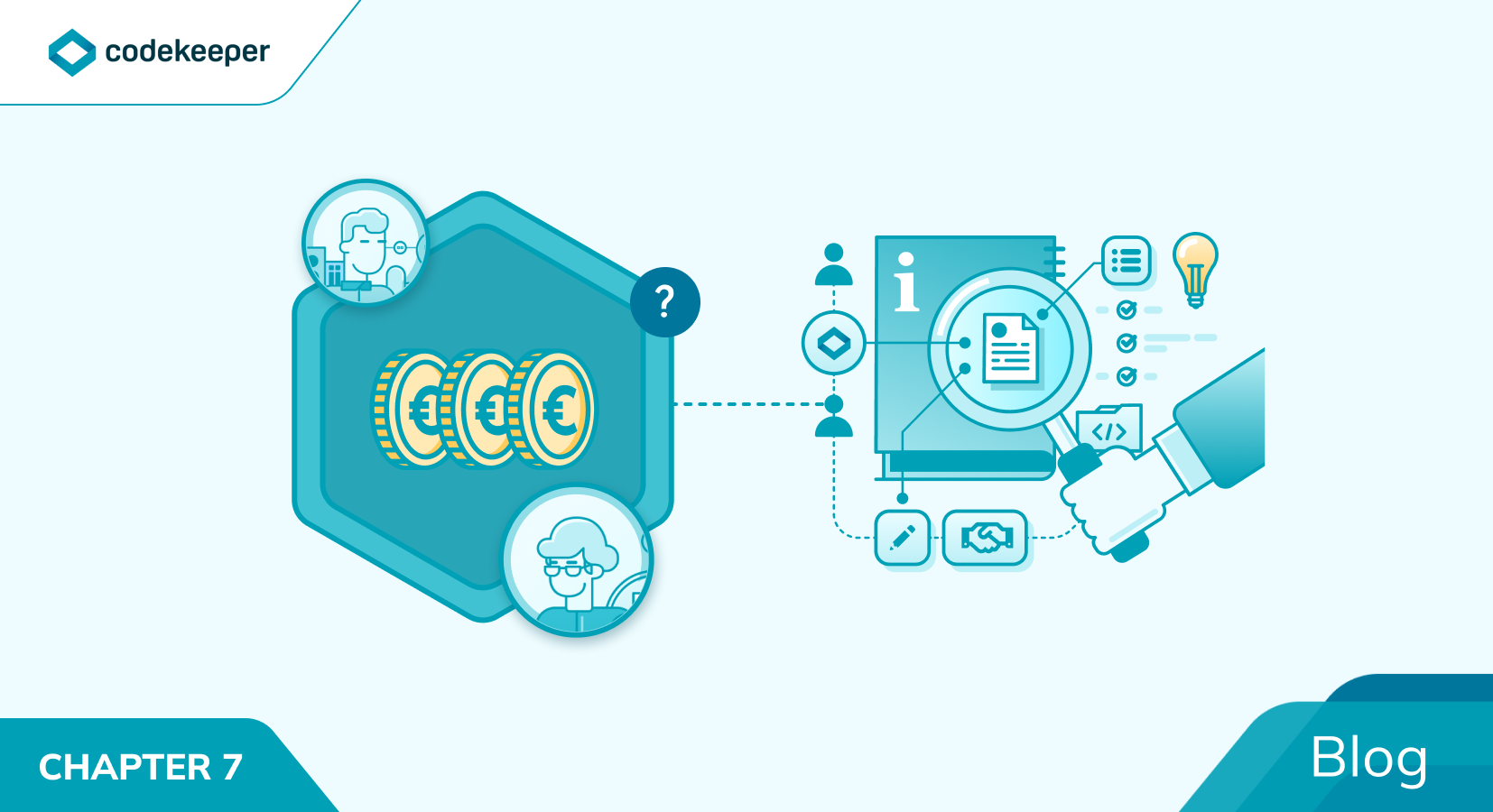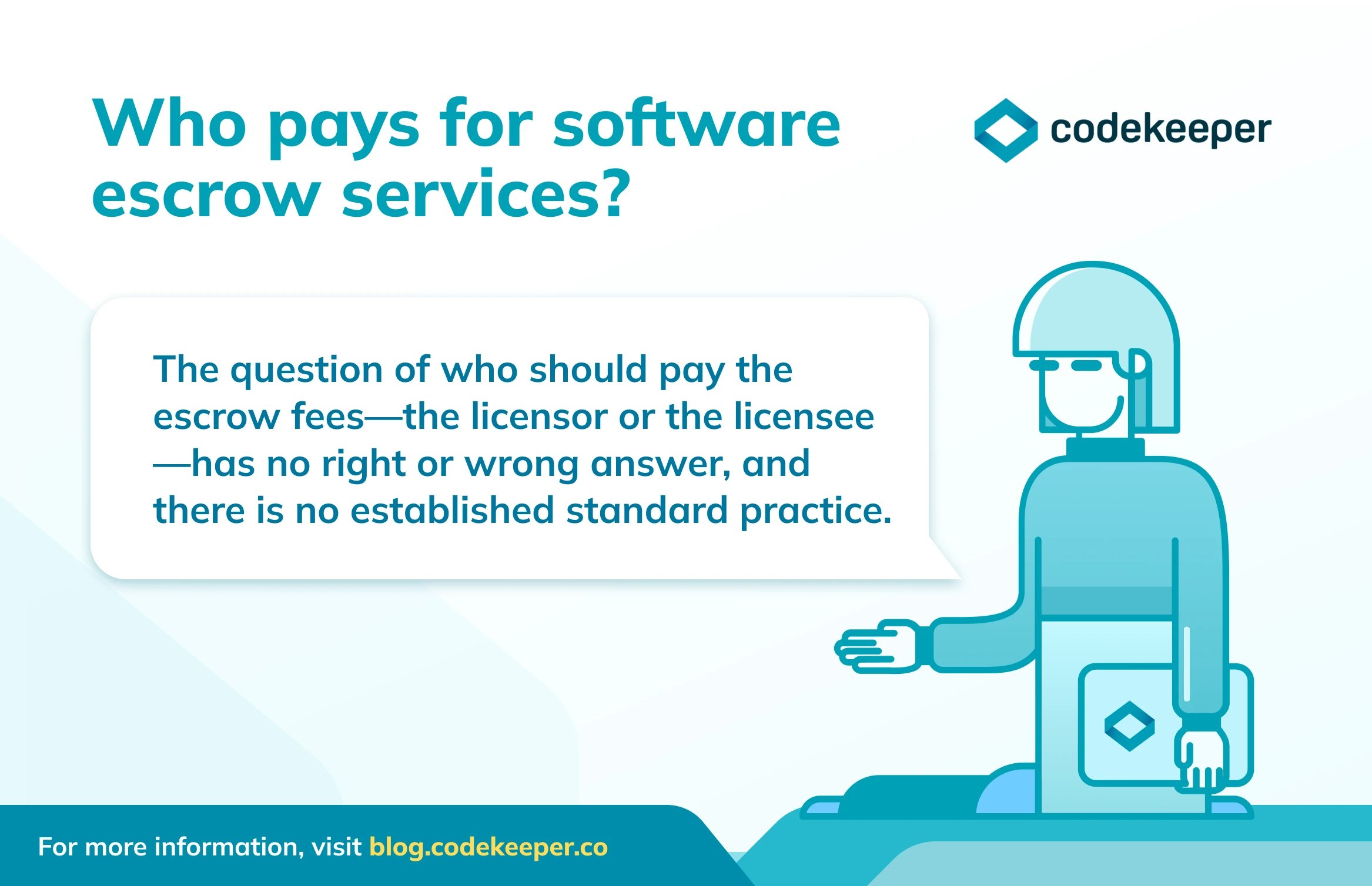The Ultimate Guide to Software and Source Code Escrow - Chapter 7
The question of who should pay the escrow fees—the licensor or the licensee—has no right or wrong answer, and there is no established standard practice.

By Content Team
Who pays for software escrow services?
The question of who should pay the escrow fees—the licensor or the licensee—has no right or wrong answer, and there is no established standard practice.
On the one hand, there are certainly instances when the beneficiary pays the escrow agent directly. For the most part, however, it’s actually the licensor who is responsible for payment of escrow fees. This is something that is often considered an expected cost of running a licensing business.
But even though the licensor may pay the fees, the licensee ultimately reimburses the licensor, more often than not. In fact, they may even pay a greater fee to the licensor at the outset to cover both escrow fees and the licensor's administrative expenses.
The main reason that we see the beneficiary covering the cost of the escrow in some way, shape, or form is that the escrow is set up in their best interest. If a licensor were to go out of business for any reason, they wouldn’t be as concerned over what happens to the system that they’ve licensed out to clients.
So even if the beneficiary doesn’t directly cover the cost of the escrow by paying the escrow agent, they will still be paying that fee through their licensor’s service charge.
Tip: To read more about who should pay for source code escrow (and how much), check out this article.


This article is part of the FREE Ebook:
The Ultimate Guide to Software and Source Code Escrow
Do you want to be the first one to know when the Ebook is published? Subscribe to our newsletter here .



